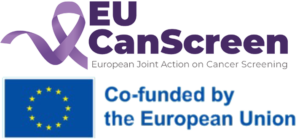Feasibility of H.pylori stool antigen testing (SAT) in combination with FIT-based colorectal cancer screening programs
Summary
The global experience of the potential of gastric cancer screening at the age of >50 years, including by H.pylori SAT will be analyzed. Protocol for a study combining FIT to SAT will be developed; relevant approvals, including from
ethical boards, will be secured; and initial pilot study will be conducted to address feasibility of this approach in the EU. Altogether ≥1000 subjects will be invited to participate in 4 centres in Europe. Invitations will be sent to individuals ≥50 years; stool samples will be collected by the participants in home conditions and delivered to a centralised laboratory. Those testing positive for H.pylori will get invited to the study centre. Standardised survey questions will be used to collect information on previous medical history and lifestyle factors; and offered H.pylori eradication medication. One month after treatment, the effectiveness will be tested by a C-urea breath test (UBT), and data on the potential adverse events will be surveyed. A proportion of non-responders will be surveyed using a
telephone interview.
This task will be led by LU, Latvia.
Subscribe to our newsletter to get news and updates.
Subscribe to our newsletter to get news and updates.

The general objective of EUCanScreen is to assure sustainable implementation of high-quality screening for breast, cervical and colorectal cancers, as well as implementation of the recently recommended screening programs – for lung, prostate and gastric cancers. EUCanScreen will facilitate the reduction of cancer burden and achieving equity across the EU.
This project has received funding from the European Union’s EU4HEALTH Programme under the Grant Agreement no 101162959










